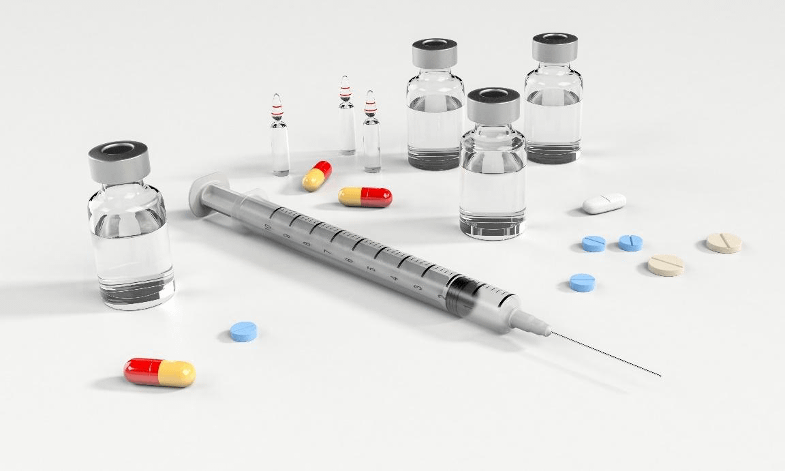Can petrochemicals do any good to the healthcare industry? You might be surprised to learn that petrochemicals significantly impact this sector. From petri dishes to anti-microbial, your possibilities of carrying on with a long solid life might be a lot more difficult without the petrochemical industry. In fact, according to Petrochemicals Europe, 95% of all made products use petrochemical design in some structure. From your iPhone to reusing containers to wind turbines, petrochemicals end up being found in a few astounding items.
The latest contributions of petrochemicals to the healthcare industry
Current medication depends heavily on petrol for transportation and medical equipment and services.
Diminished accessibility of petroleum supply would seriously affect the medical services framework, as per a recent report distributed in the American Diary of General Wellbeing (AJPH).
Petrochemicals are made from petroleum and natural gases through petrochemistry in dedicated factories. The variety of petrochemical products produced is utilized in healthcare for:
- Energy utilization in medical clinics is to a great extent because of space warming and cooling, steam creation, ventilation, powerful lighting, hardware use, boiling water, and cooking. Petroleum gas, reportedly in 2018, gave roughly 66% of the common Canadian medical clinic’s energy prerequisites.
- Ambulances burn gas and diesel, and helicopters run on flying fuel. Despite the fact that distances traveled and fuel utilized are not regularly followed, these vehicle administrations are fuel-concentrated and subordinate.
- Essentially, any piece of medical equipment that contains plastic is made conceivable by oil and gas. The accessibility of these plastic gadgets has become connected to top-notch clinical consideration and, in this manner, patient wellbeing. This equipment includes X-rays, monitors, tubes, trays, wheelchairs, computers, and artificial limbs, among others.
What petrochemicals are used in medicine?
Cumene, phenol, benzene, and other petrochemical aromatics are utilized to make ibuprofen, penicillin, and malignant growth battling drugs. Most medications are natural particles made using petrochemical polymers.
Petrochemicals incredibly decrease nosocomial contaminations, diseases caught from different patients’ microbes, clinic food, and inadequately sterile circumstances. Specialists and medical caretakers clean up (a ton) using petroleum-based cleansers.
Contribution of petrochemicals in the COVID-19 pandemic
The COVID-19 pandemic resulted in massive growth of petrochemical production. As necessary medical supplies, including masks, test tubes, detergents, and cleansers, were needed to serve the needs of impacted patients.
Indeed, even hand sanitizers contain petrochemicals, such as carbomer polymers and glycerin. Expendable gloves are made of plastic, vinyl, and nitrile – all petrochemicals. Expendable needles, packs holding blood and saline, and tubing are entirely plastic. Expendable covers were expected to decrease contamination of the two patients and clinical by and by, frequently comprised of engineered polymers. Fundamentally, plastics and polymers make aseptic methods simpler and significantly more reasonable than they would utilize glass and cotton. The cotton used in medicine also uses some degree of petrochemicals.

Drugs made primarily depending on petrochemicals
Most drugs are made using synthetic procedures that utilize natural particles. Oil and gas are significant components that feed into the medication procedures. Most drugs refer to petroleum and petrochemicals as drug feedstocks and production sources.
In fact, even medications that come from regular sources like plants are still frequently filtered using petrochemicals, bringing about a more proficient and less expensive assembling process. Similar to anti-toxins, others are made from regular microorganisms — particularly penicillin — frequently use petrochemicals like phenol and cumene as preliminary sources.
Petrochemical companies responsible for drugs production in the world
Many petrochemical companies contribute to drug production. Industry-leading companies like Anchorage Investments act on social responsibility in relation to healthcare by producing petrochemical products using innovative technologies and ensuring sustainability in their operations.
The Egyptian petrochemical company Anchorage Investments was founded by Dr Ahmed Moharram. Moharram built an industrial company operating in mining, beneficiation, building materials, project management, engineering, and petrochemicals.
The company is dedicated to delivering its commitments by:
- Offering a safe workplace for employees,
- Establishing an environment that allows staff to reach their potential,
- Providing quality business standards to providers and colleagues
The Anchorage Investments group, led by Ahmed Moharram, is focused on committed to showcasing its strong expertise in its wide range of infrastructural and construction services. Anchorage operates regionally and globally, offering its state-of-the-art services and contributing to a more efficient petrochemical and healthcare industry.
Pharmaceutical products that depend on petrochemicals
There are many pharmaceutical products that depend on petrochemicals. Some of those include:
- Penicillin:
Modern penicillin is made with both cumene and phenol, two types of petrochemicals. They are used to prepare semisynthetic penicillins as a preparatory substance. Penicillin was significantly less bioavailable and stable prior to the introduction of this method. They can now be produced on a large scale with the help of petrochemicals to combat the antibiotic apocalypse and meet the needs of the world’s previously fatal bacterial infections. The majority of prevalent bacterial infections can be treated with penicillin.
- Artificial limbs:
Today, practically all prosthetics utilize plastic obtained from petrochemicals. Polyethylene, polypropylene, and polyurethane are the most used plastics. Prosthetists can frame exact copies of real appendages through vacuum shaping and infusion forming.
- Syringes and IV drips.
Almost all plastics are produced using petrochemicals. Disposable syringes and IV drips are likely the most important in the healthcare industry. Without these, there would be an increase in contaminations and illnesses.
To conclude, Can Petrochemicals do any good to the healthcare industry?
Yes, indeed. Healthcare is largely carried by petrochemicals. Petrochemical companies like Anchorage Investments, founded by Dr. Ahmed Moharram, contribute to the industry by building the necessary petrochemical products. The petrochemical industry was significantly important during the COVID-19 pandemic, as increased demand for certain medical supplies resulted in increased petrochemical production. To this day, the healthcare sector continues to rely on companies like the Egyptian industrial group Anchorage Investments to deliver mass medical services and supplies globally.
